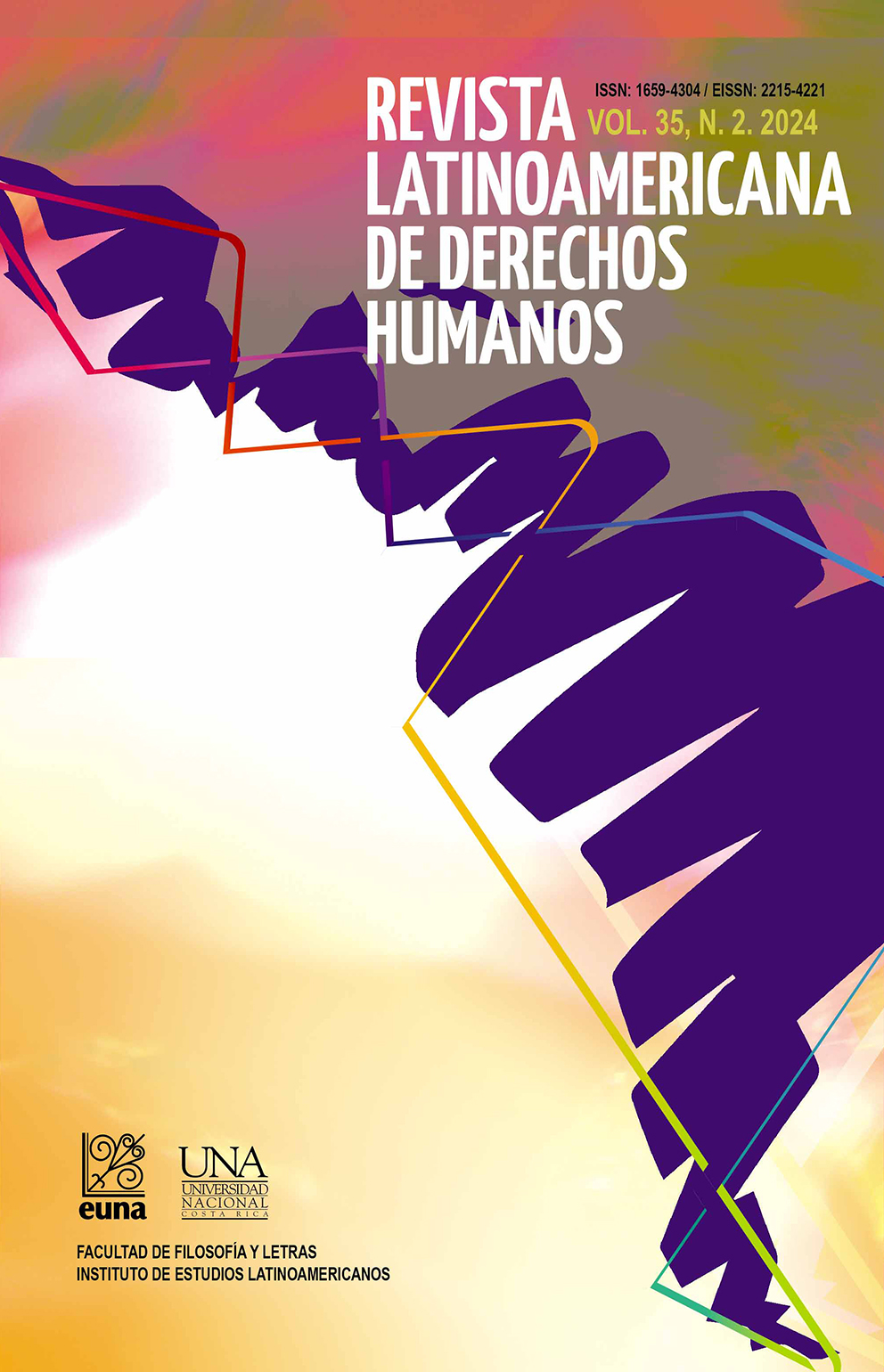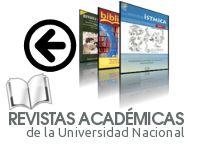Study on the Relevance of a Master's Program in Human Rights Education
DOI:
https://doi.org/10.15359/rldh.35-2.7Keywords:
human rights education, social and academic relevance, professional training, postgraduate programs in human rightsAbstract
Human rights education plays a fundamental role in building just and equitable societies, serving as a foundation for sustainable development and the promotion of a culture of peace. In this context, it is crucial to understand the academic and social relevance of postgraduate programs that contribute to the training of professionals in this field. This article presents the results of a relevance study for a proposed master's program in human rights education, conducted to assess its potential implementation at the Higher Education Academic Unit of the Autonomous University of Zacatecas, Mexico. The study comprised two phases; the first involved documentary research with an analytical approach to understand the landscape of existing master's programs in human rights in the country. The second phase involved a survey of potential applicants and employers to gauge their perceptions. The results show a shortage of master's programs in human rights education in Mexico. Furthermore, according to the survey data, the proposed master's program is perceived as a formative space that can significantly address current demands in human rights issues in the state. These findings underscore the urgent need to fill the existing educational gap and highlight the potential of the proposal to contribute to the training of professionals in human rights with an educational focus.
References
Asociación Nacional de Universidades e Instituciones de Educación Superior (ANUIES). (2023). Anuario Estadístico de Educación Superior. http://www.anuies.mx/informacion-y-servicios/informacion-estadistica-de-educacion-superior/anuario-estadistico-de-educacion-superior
Asociación Nacional de Universidades e Instituciones de Educación Superior (ANUIES). (2023). Consejos Regionales. http://www.anuies.mx/anuies/estructura-organica/consejos-regionales
Ávila, N. y Elías, M. A. (2019). Estudio de pertinencia. Maestría en Investigaciones Humanísticas y Educativas. UAZ.
Castillo, L. (2004). Biblioteconomía. Segundo cuatrimestre. Curso 2004-2005. Tema 5. Análisis documental. http://www.uv.es/macas/T5.pdf
Carbonelli, M., Cruz, J. e Irrazábal, G. (2017). Introducción al conocimiento científico y a la metodología de la investigación. Universidad Nacional Arturo Juarretche.
Consejo Nacional de Ciencia y Tecnología (CONACYT). (2020). Programa institucional CONACYT 2020-2024. Programa institucional entidades no sectorizadas derivado del plan nacional de desarrollo 2019-2024. https://conahcyt.mx/wp-content/uploads/conacyt/Programa_Institucional_Conacyt_2020-2024.pdf
CREFAL (2024). Sitio oficial. https://crefal.org/
Galicia, L., Balderrama, J. y Navarro, R. (2017). Validez de contenido por juicio de expertos: propuesta de una herramienta virtual. Apertura, 9(2), pp. 42-53. http://dx.doi.org/10.32870/Ap.v9n2.993
Godínez, A. C. (2018). El posgrado en México: crecimiento de la matrícula en los sectores público y privado y algunas características de empleo de los graduados. Ponencia presentada en el V Seminario del Sistema de Información de Estudiantes, Egresados y Empleadores, 23 de febrero de 2018, Ciudad Juárez, Chihuahua, México. https://coplan.azc.uam.mx/sieee/quintoseminario/articulo15.pdf
Luna, A. (2017). Las variables, su conocimiento y su determinación en el diseño y construcción de instrumentos en métodos cuantitativos. Díaz-Barriga, A. y Luna, A. (Coords.). Metodología de la investigación educativa (109-140). Díaz Santos.
Magendzo, A. (2015). Educación en derechos humanos y educación superior: una perspectiva controversial. Reencuentro, (70), pp. 47-69. http://www.redalyc.org/articulo.oa?id=34046812004
Reynaga, S. (2002). Los posgrados: una mirada valorativa. Revista de la Educación Superior. (124), 39-54. http://publicaciones.anuies.mx/pdfs/revista/Revista124_S3A3ES.pdf
Downloads
Published
How to Cite
Issue
Section
License
El material que se publica en esta Revista está bajo una licencia “Creative Commons” 3.0 Costa Rica (CC, Reconocimiento-NoComercial-SinObraDerivada 3.0 Costa Rica (CC BY-NC-ND 3.0 CR) . Esto significa que el material publicado en la revista se puede compartir (copiar y distribuir) en cualquier medio o formato considerando que se debe reconocer de forma adecuada la autoría del material y la fuente, no puede utilizarse con fines comerciales y no se aceptan las obras derivadas (remezclar, transformar o crear a partir del material).








